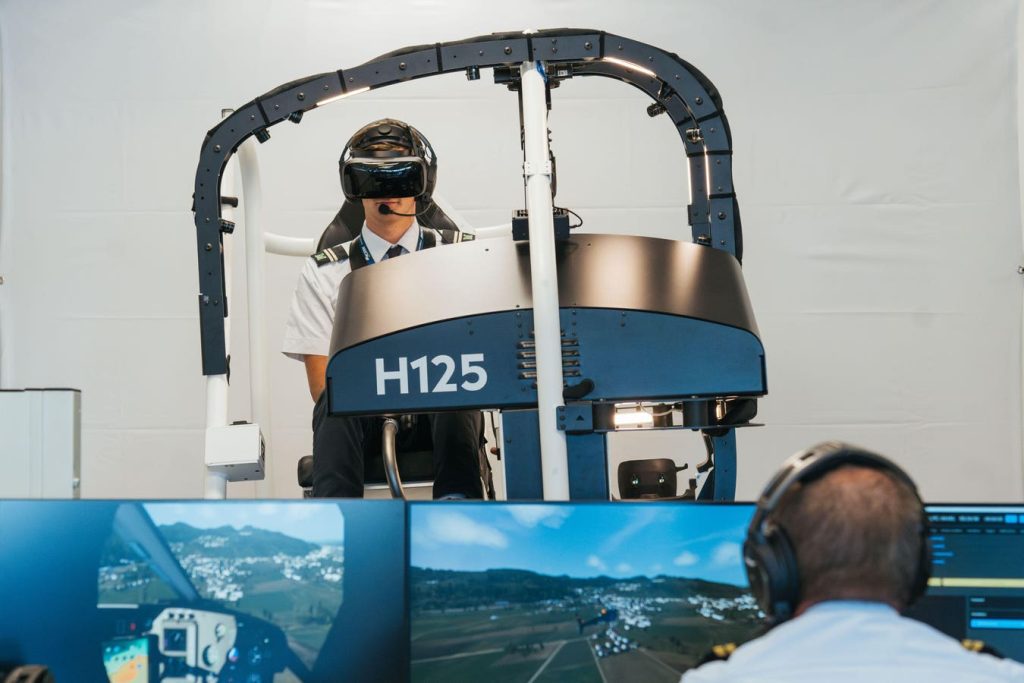Swiss startup, Loft Dynamics, is revolutionizing pilot training with their virtual reality flight simulators. These simulators offer realistic training experiences at a fraction of the cost of traditional full flight simulators. The company’s CEO, Fabian Riesen, believes that these VR simulators will make pilot training more accessible and help alleviate the pilot shortage currently facing airlines. Loft recently achieved a significant milestone when the Federal Aviation Administration qualified their Airbus H125 simulator as a Level 5 Flight Training Device, making it the first VR simulator to receive such approval.
While Loft’s simulators are currently limited in their capabilities compared to full flight simulators, they offer benefits such as a 360-degree field of view and more accurate depth perception. These features make them ideal for training maneuvers close to the ground, such as autorotation. Loft is also looking to expand into the airplane market, developing simulators for large fixed-wing aircraft. By offering cheaper and more widely available simulators, Loft aims to drive down the cost of pilot training and address the growing demand for pilots in the aviation industry.
The company’s journey began when Riesen, a pilot himself, was dissatisfied with the high cost of simulator training and decided to create his own VR flight simulator at home. After several years of development and perseverance, Loft’s team of engineers succeeded in creating a quality VR simulator for helicopters. Their dedication and innovation have set them apart in an industry dominated by established simulator makers like CAE.
While Loft faces challenges from competitors and regulatory requirements, the company remains confident in the potential of their technology. Despite skepticism from the industry, Loft is paving the way for virtual reality in pilot training and setting new standards for simulator technology. With support from investors and positive feedback from customers, Loft is poised to become a major player in the aviation training industry.
The FAA reauthorization bill passed by Congress in May includes provisions that could further boost the demand for simulators and VR training devices. This legislation aims to streamline the training process for commercial pilots using simulators, potentially reducing the required flight hours for becoming an airline pilot. Loft’s innovative approach to training could align well with these regulatory changes and contribute to a more efficient and cost-effective pilot training process.
As Loft continues to expand its product offerings and explore new markets, the company faces both opportunities and challenges. With a focus on quality and innovation, Loft is well-positioned to lead the way in the evolution of flight simulator technology. By offering a more accessible and affordable training solution, Loft is reshaping the future of pilot training and addressing the critical need for skilled aviation professionals in the industry.













